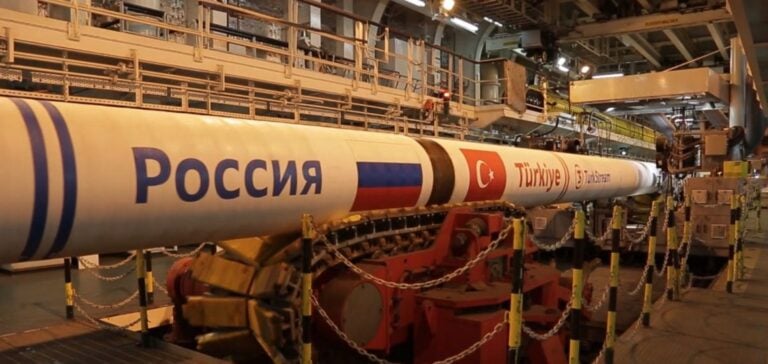Russia accused Ukraine on Monday of orchestrating an attack on a compression station of the TurkStream pipeline located in the Krasnodar region, in the southwest of the country. According to a statement from the Russian military, nine drones were deployed in an attempt to disrupt the flow of gas to Europe.
Russian authorities claimed all drones were neutralized without affecting the operation of the compression station in Gaï-Kodzor. However, debris from one downed drone caused minor damage to a building and some equipment. No injuries among staff were reported.
A strategic pipeline for Europe
Inaugurated in 2020, the TurkStream pipeline is a key infrastructure for Europe’s energy supply. It has the capacity to transport up to 31.5 billion cubic meters of gas annually through two parallel pipes, each 930 kilometers long, connecting Anapa in Russia to Kiyiköy in Turkey, via the Black Sea. This pipeline enables Russia to bypass Ukraine in delivering gas to southeastern and southern Europe.
Rising tensions over energy transit
Since January 1, 2025, Russian gas deliveries via Ukraine have ceased following the expiration of a contract signed in 2019. This rupture, combined with the sabotage of the Nord Stream pipelines in 2022, has further limited Europe’s energy supply options. Now, TurkStream and its extension Balkan Stream are the only terrestrial routes for Russian gas to Europe.
In addition to gas transported through these pipelines, Europe continues to import Russian liquefied natural gas (LNG) via tankers, despite its efforts to diversify energy sources.
Geopolitical stakes and sensitive infrastructure
The alleged attack on TurkStream underscores the ongoing tensions between Moscow and Kyiv, as the war in Ukraine continues after nearly three years. Energy infrastructure has become a strategic target in this conflict, reflecting the growing stakes surrounding Europe’s energy security.






















